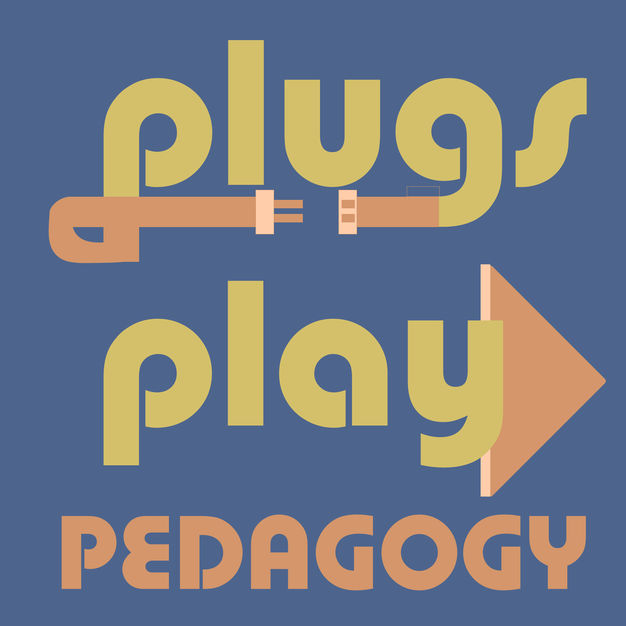
Plugs, Play, Pedagogy
Kyle Stedman
A playful, collaborative, monthly podcast on teaching writing and rhetoric in the 21st century
- 1 hour 2 minutesEpisode 12: Video Didn't Kill the Composition StudentHow can composition instructors use video in the classroom? Even if they're scared?
Plugs, Play, Pedagogy
Episode 12: Video Didn't Kill the Composition Student
Transcript available as a Google Doc here; check it out for more links, and feel free to comment on anything that needs comments.
Produced and recorded by Kyle Stedman ([email protected]; @kstedman), assistant professor of English at Rockford University, in cooperation with KairosCast and Writing Commons.
This episode is co-edited with John Silvestro from Miami University, @j_silvestro, [email protected].
Part 1: Interview with Jason Palmeri
Jason Palmeri, @jasonpalmeri, is associate professor of English and Director of Composition at Miami University and author of Remixing Composition.
Jason and John chat about how Jason got into teaching video, some of his assignments, and some of the theories that undergird his practice. Plus, they're both nice and fun.
Part 2: Scripting Our Way to Video
Next, John and Kyle talk about John's assignment of having students write scripts for movies that they don't actually produce. You'll hear two examples of those written scripts read aloud for the show by John and Sally Neidhard. And we talk about how kind of weird that is; Sergei Eisenstein is invoked.
See the show transcript for lots of links and for the exact scripts the students wrote.
Part 3: Crystal's Review of Video Scholarship
Finally, Crystal VanKooten, assistant professor of writing and rhetoric at Oakland University (@crystalvk), discusses some fundamental scholarship on video and composition. Including:
- Sarah Arroyo, Participatory Composition: Video Culture, Writing, and Electracy
- Jody Shipka, Toward a Composition Made Whole
- Bump Halbritter, Mics, Cameras, Symbolic Action: Audio-Visual Rhetoric for Writing Teachers
- Stuart Selber, Multiliteracies for a Digital Age
Resources
- Jason mentions Michael Wesch's work on YouTube.
- John mentions Kirby Ferguson's "Everything is a Remix" and Tony Zhou’s “Every Frame a Painting” series, including "F for Fake (1973) - How to Structure a Video Essay"
- The Internet Movie Script Database
- celtx (tools for scripting/planning movies)
End Matter
The show is licensed by a Creative Commons Attribution-NonCommercial 4.0 International License.
Two sound effects were from freesound.org:
- alex8valdes, "Strange T.V. sound"
- Ohrwurm, “Working with shovel.wav"
All the music is freely available at OverClocked ReMix:
- Big Giant Circles and some1namedjeff, “Thunderstruck”
- Mazedude, “Torvus Chips”
- Hylian Lemon, “Essence of Lime"
- Disco Dan, "Blue Lightning"
7 January 2016, 12:48 am - 40 minutes 13 secondsEpisode 11: Composing CreativelyWhat are the intersections between composition pedagogy and creative writing?
Plugs, Play, Pedagogy
Episode 11: Composing Creatively
Transcript available as a Google Doc here; check it out for more links, and feel free to comment on anything that needs comments.
Part 1: Why this book?
First, you'll hear me talk to Danita Berg, one of the co-editors of Creative Composition: Inspiration and Techniques for Writing Instruction.
We discuss the different training that MFAs and PhDs in rhet/comp get, the need for this book, and where the split in the fields came from. Eventually, we got into a big, rambly conversation about multimodality and technology in both fields, but it was too crazy to edit down for this episode--so you'll just have to ask us about it later.
Part 2: Digging into Details
Next, you'll hear 3 pieces self-produced by authors of chapters in Creative Composition:
- Denise Landrum-Geyer talks about the importance of essaying, as a verb, a concept that connects our fields.
- Anna Leahy discusses how to cultivate talent, get better at writing, and be gritty.
- Shawn Kerivan defends the teaching of grammar as a tool with its own history, meaning, and depth, not as something dry to discuss in a vacuum.
End Matter
Produced and recorded by Kyle Stedman ([email protected]; @kstedman), assistant professor of English at Rockford University, in cooperation with KairosCast and Writing Commons. Please contact me if you have ideas for future episodes or stories about how you've used the ideas you've heard on the show!
The theme music at the beginning of the episode is by Cactus May, graduate student in rhetoric and composition, and you heard three pieces that are freely available at OverClocked ReMix:
- Zisotto, "The Depetrification of the Submerged Forest"
- Omni-Psyence & TeraCMusic, "Jewel of Enhasa"
- Disco Dan, "Blue Lightning"
The show is licensed by a Creative Commons Attribution-NonCommercial 4.0 International License.
30 September 2015, 9:35 pm - 1 hour 4 minutesEpisode 10: Exploring the PastWhat kinds of relationships do we have to the places we inhabit? And what do those relationships have to do with our teaching?
Plugs, Play, Pedagogy
Episode 10: Exploring the Past
Transcript available here as a Google Doc full of links. If you see edits I should make or links I should add, go ahead and leave a comment.
Part 1: Researching My House
I'm obsessed with my 99-year-old house. So I made a 27-minute audio piece exploring my relationship to it. That's it.
Music you hear in this segment, all estimated to be from 1916 (the year the house was built):
- William Thomas, “Rose of No Man’s Land”
- Bresnen, “You’re a Dangerous Girl”
- Don Richardson, “Arkansas Traveler”
- Imperial Quartet of Chicago, “Perfect Day"
- Paul Reimers, “Memories”
- George Ballard, “There’s a Long Long Trail”
Links to other stuff is in the transcript.
Part 2: Jody Shipka's Response
In hopes that someone could tell me what my piece in Part 1 has to do with pedagogy, I turned to two smart friends who are interested in the past.
First, there's Jody Shipka, who teaches at University of Maryland, Baltimore County, tweets at @remediatethis, and is currently working on a project called "Inhabiting Dorothy." You can find out more about this and other projects at remediatethis.com.
Part 3: Jen Michaels' Response
Next, we hear a response from Jen Michaels, a doctoral candidate at the Ohio State University. You can follow her on Twitter at @jenlmichaels and learn more about her work at jenmichaels.net.
She mentions the Digital Archive of Literacy Narratives a lot, which you know about, right?
End Matter
Produced and recorded by Kyle Stedman ([email protected]; @kstedman), assistant professor of English at Rockford University, in cooperation with KairosCast and Writing Commons. Please contact me if you have ideas for future episodes or stories about how you've used the ideas you've heard on the show!
The theme music at the beginning of the episode is by Cactus May, graduate student in rhetoric and composition, and the final song was Disco Dan, "Blue Lightning."
The show is licensed by a Creative Commons Attribution-NonCommercial 4.0 International License.
Images
And just for fun, here's some of the cool stuff I mentioned in Part 1.
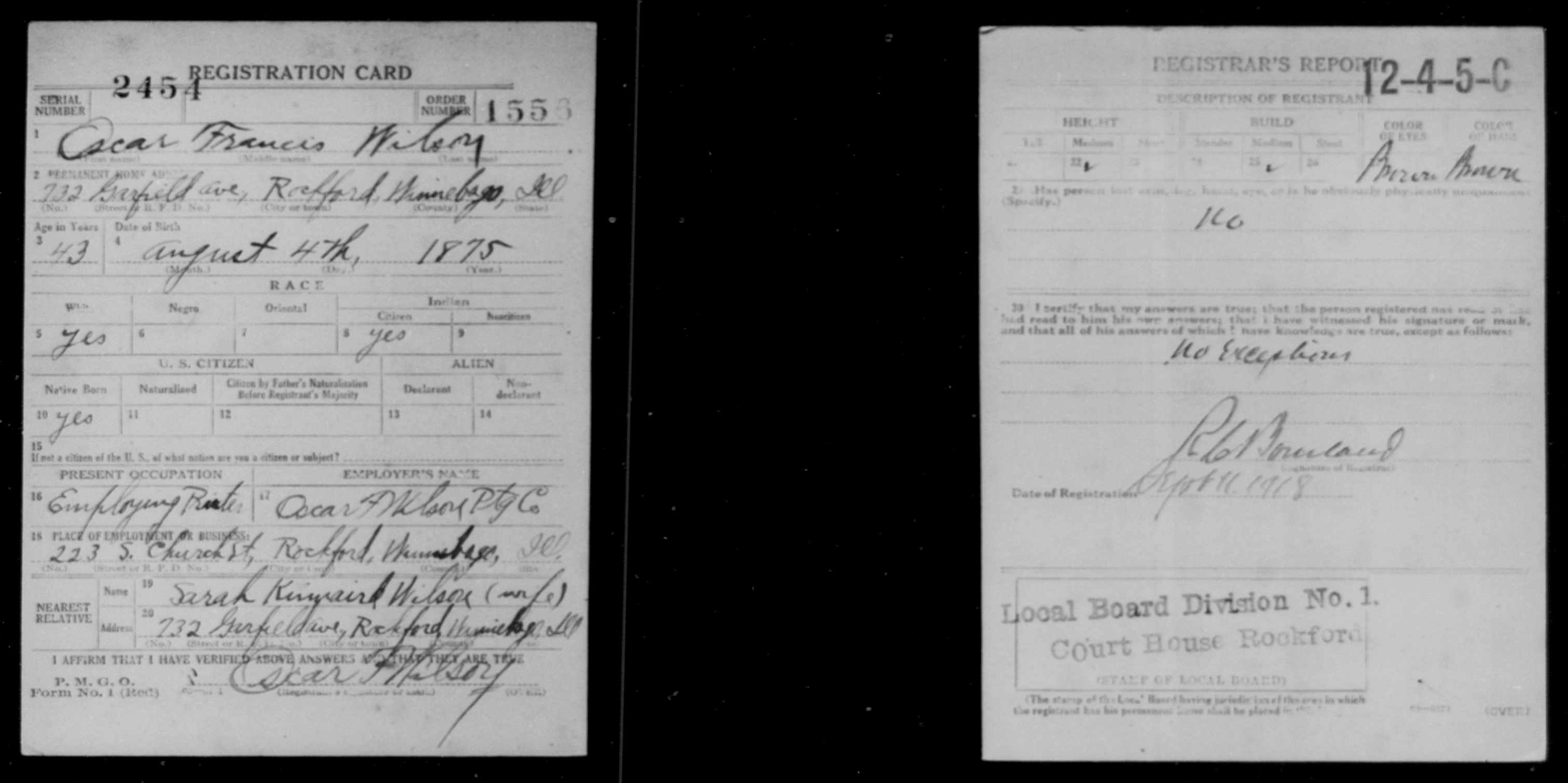



 30 July 2015, 12:49 pm
30 July 2015, 12:49 pm - 56 minutes 9 secondsEpisode 9: Podcasting with StudentsHow can I use podcasting in my composition classes?
Plugs, Play, Pedagogy
Episode 9: Podcasting with Students
Produced and recorded by Kyle Stedman ([email protected]; @kstedman), assistant professor of English at Rockford University, in cooperation with KairosCast and Writing Commons. If you have ideas for future episodes, please contact me!
Part 1: Podcasting Social Justice
First, I interview Faith Kurtyka (@fmkurtyka) from Creighton University about a recent podcasting assignment she gave to students in the Cortina Community, a living-learning community at her school.
We then hear an excerpt from one of the projects her students conducted: “The American System and Pay Inequality” by Vincent Salazar and Kaylee Stankus. You can hear their full episode and learn about all the other students work at the Cortina Community blog.
Part 2: The Week in Review Assignment
Here, I play a brief excerpt from the gazillions I could have chosen from two 2012 pieces from Kairos: A Journal of Rhetoric, Technology, and Pedagogy by Jennifer L. Bowie (@starre, screenspace.org): "Rhetorical Roots and Media Future: How Podcasting Fits into the Computers and Writing Classroom" and "Podcasting in a Writing Class? Considering the Possibilities."
Specifically, we hear about Bowie's "week in review" assignment, which asks students to use the serial audio format of podcasting to teach each other about what they've learned in class. The full episode, and the resources she mentions in this clip, are available here.
In the interlude before Part 3 begins, I mention 3 pieces of scholarship on podcasting in the classroom:
- Ewing, Laura. "Rhetorically Analzying Online Composition Spaces." Pedagogy 13.3 (2013): 554-61.
- Ng'ambi, Dick, and Annette Lombe. "Using Podcasting to Facilitate Student Learning: A Constructivist Perspective." Educational Technology & Society 15.4 (2012): 181-92.
- Krause, Steven D. "Broadcast Composition: Using Audio Files and Podcasts in an Online Writing Course." Computers and Composition Online (2006).
Part 3: More Scholarship, More Ideas, More Trauman
Finally, we hear a segment prepared by Ryan Trauman (@trauman) with an overview of five pieces of scholarship on podcasting in the classroom. (By the way, I would love to feature more segments like this. What do you know about? What have you been reading?)
- Bowie, Jennifer L. (2012). “Rhetorical Roots and Media Future: How Podcasting Fits into the Computers and Writing Classroom.” Kairos: A Journal of Rhetoric, Technology, and Pedagogy, 16(2).
- Friesen, Norm. “The Lecture as a Transmedial Pedagogical Form: a Historical Analysis.” Educational Researcher 40.3 (2011): 95–102.
- Gray, Kathleen et al. “Web 2.0 Authorship: Issues of Referencing and Citation for Academic Integrity.” The Internet and Higher Education 11.2 (2008): 112–118.
- Jones, Leigh A. “Podcasting and Performativity: Multimodal Invention in an Advanced Writing Class.” Composition Studies 38.2 (2010): 75–91. Print.
- Reid, Alex. “Portable Composition: iTunes University and Networked Pedagogies.” Computers and Composition 25.1 (2008): 61–78.
End Matter
The theme music at the beginning of the episode is by Cactus May, graduate student in rhetoric and composition.
You also heard four pieces from OverClocked ReMix, a site filled with free rearrangements of videogame tunes:
- Brandon Strader, Chickenwarlord, Hylian Lemon, & Tuberz McGee, "No Rain in the Desert"
- Joey Grady, "The Seven Wise Men Shot First"
- Djjd, "Serpent's Spiral"
- Disco Dan, "Blue Lightning"
This episode is licensed by a Creative Commons Attribution-Noncommercial-ShareAlike license.
13 June 2015, 12:42 am - 36 minutes 7 secondsEpisode 8: Looking into the Fish Tank: Tiny Encounters at CCCCWhat do writing and rhetoric scholars care about?
Plugs, Play, Pedagogy
Episode 8: Looking into the Fish Tank: Tiny Encounters at CCCC
Produced and recorded by Kyle Stedman ([email protected]; @kstedman), assistant professor of English at Rockford University, in cooperation with KairosCast and Writing Commons. If you have ideas for future episodes, please contact me!
Transcript available here.
Part 1: Tiny Encounters
As I walked the 2015 meeting of the Conference on College Composition and Communication, I stuck a mic in people's faces and asked them a simple question: what do you care about that you wish other people knew about?
You'll hear lots of answers in the episode from these people, in this order:
- Heather Branstetter, Virginia Military Institute, @findheatherlee
- Rachel Gramer, University of Louisville, @rachelgramer
- Megan Faver Hartline, University of Louisville, @meganhartline
- Steven Hopkins, Arizona State University, @seemylittleknee
- Matthew Osorn, Clemson University, @hellojuice_
- Caitlin Ray, University of Nebraska at Omaha, @ray_raycaitlin
- Steven Hammer, St. Joseph's University, @patchbaydoor
- Greg Wilson, Texas Tech University, @baconred
- A.D. Carson, Clemson University, @aydeethegreat, aydeethegreat.com
- Amanda Licastro, CUNY Grad Center, @amandalicastro, The Writing Studies Tree
- Janice Walker, Georgia Southern University, @janicewalker, The LILAC Group
- Scott Reed, Georgia Gwinnett College, @rhetoroxor, C's the Day on Facebook
- Kate Pantelides, Eastern Michigan University, @klpanteli
- Megan McIntyre, Dartmouth College, @rcmeg
Part 2: Say Something Silly Now, Please
I guess I did ask one other question: "What else could the letters CCCC stand for?"
You may or may not be surprised at the number of times cats were mentioned.
So there's that.
End Matter
The theme music at the beginning of the episode is by Cactus May, graduate student in rhetoric and composition.
You also heard two pieces from OverClocked ReMix (both water-related, natch): halc, "Another Seascape," and Disco Dan, "Bubble Man (Wants to Get) Funked Up." Both are free and part of a massive collection of videogame music remixes.
1 May 2015, 9:08 pm - 47 minutes 57 secondsTeaching with the Digital Archive of Literacy NarrativesWhat is the DALN? And how can I use it in my classes?
Plugs, Play, Pedagogy
Episode 7: Teaching with the Digital Archive of Literacy Narratives
Produced and recorded by Kyle Stedman ([email protected]; @kstedman), assistant professor of English at Rockford University, in cooperation with KairosCast and Writing Commons. If you have ideas for future episodes, please contact me!
Introduction
This episode is produced in cooperation with the Digital Archive of Literacy Narratives, "a publicly available archive of personal literacy narratives in a variety of formats (text, video, audio) that together provide a historical record of the literacy practices and values of contributors, as those practices and values change."
Learn more about the DALN at its website, and if you see their booth set up at a conference (cough, CCCC, cough), drop by to learn more and to submit your own narrative!
The episode begins with the narrative of Charles Weinberg; you can watch his video or learn more about his piece at his record page in the DALN.
Part 1: Stories that Speak to Us
First we hear from Cynthia L. Selfe, Humanities Distinguished Professor in the Department of English at Ohio State University and one of the founders of the DALN, and Scott Lloyd DeWitt (@ScottLloydDW), Associate Professor of English at The Ohio State University and one of the DALN's earliest supporters.
They discuss the origin story of the DALN, the skills they learned when collecting narratives to store there, and the process of editing Stories that Speak to Us: Exhibits from the Digital Archive of Literacy Narratives, a free, born-digital book edited by Selfe, DeWitt, and H. Lewis Ulman as part of the Computers and Composition Digital Press.
Part 2: One Way to Use the DALN in Your Classroom
Next we hear from Ben McCorkle (@illiac), associate professor of English at OSU Marion and one of the current co-directors of the DALN. He shares the story of how he worked the DALN into the syllabus for an upcoming class.
Part 3: The DALN in Practice
Finally, we hear from Kate Comer, assistant professor of English at Barry University and editor of the online journal Harlot, and Michael Harker, Assistant Professor of English at Georgia State University and another current co-director of the DALN.
They discuss their article "The Pedagogy of the Digital Archive of Literacy Narratives: A Survey" from the March 2015 issue of Computers and Composition, which "briefly reviews the historical uses of literacy narratives in composition courses before turning to current experiments incorporating the DALN."
End Matter
The theme music at the beginning of the episode is by Cactus May, graduate student in rhetoric and composition.
You also heard two pieces from OverClocked ReMix: PxFury, "Dragons of Paradise" and Disco Dan, "Blue Lightning." Both are free and part of a massive collection of videogame music remixes.
14 March 2015, 8:05 pm - 38 minutes 14 secondsLocations of WritingHow is our composing and teaching affected by the places we inhabit?
Plugs, Play, Pedagogy
Episode 6: Locations of Writing
Produced and recorded by Kyle Stedman ([email protected]; @kstedman), assistant professor of English at Rockford University, in cooperation with KairosCast and Writing Commons. If you have ideas for future episodes, please contact me!
Transcript is available here.
In the September 2014 issue of College Composition and Communication, editor Kathleen Blake Yancey opened a special issue on locations of writing with ten vignettes--short reflective pieces where authors considered the meanings of the places where they write and teach. Four of those vignettes are featured here, read by their authors:
- Joy Santee, "Writer in the Attic: Place-Based Constraints on Research Writing"
- Lisa Lebduska, "Finding the Metaphor"
- Marcia Bost, "Writing in and for the Cloud"
- Peter Wayne Moe, "Of Ballparks and Battlefields"
I add a bit of thoughts on the importance of narrative nonfiction and on the weirdness of the way we talk about digital spaces, but really, the focus is on the original authors, where it ought to be.
The music you hear in this episode is all from Jamendo.com:
- “A Heart with Your Name on It (Instrumental)” by Kara Square
- “With the Fishes” by Nonsense Wind
- “The Rise” by Irokez
- “More Like Aqua (take 01)” by The James Quintet
The four vignettes are Copyright 2014 by the National Council of Teachers of English. All rights reserved. Used by permission.
1 February 2015, 3:18 am - 1 hour 5 minutesGrumble, Grumble: The Pitfalls of Gaming PedagogyWhat complications can we expect when we teach with games? And why are we so afraid of play?
Plugs, Play, Pedagogy
Episode 5: Grumble, Grumble: The Pitfalls of Gaming Pedagogy
Produced and recorded by Kyle Stedman ([email protected]; @kstedman), assistant professor of English at Rockford University, in cooperation with KairosCast and Writing Commons. If you have ideas for future episodes, please contact me!
Transcript is available here.
Watch a screencast of this episode's main narration being recorded and edited into a final product on YouTube.
Introduction
Welcome to the second of two episodes dedicated to intersections of gaming and the pedagogy of teaching writing and rhetoric, both of which I co-edited with Stephanie Vie (@digirhet). Broadly speaking, the first episode dealt with specific ideas for teaching, while this episode digs into the messy complexities of gaming pedagogies (awesome as they are).
We start out by sharing a teaching idea from Stephanie (using game walkthroughs in technical writing classes!) to get us into the idea of messiness, which we support with a clip from the previous episode: Samantha Blackmon talking about the messy topic of colonialism by using the videogame Bastion.
Part 1: WoW, Games are Complicated!
Part 1 consists of a lengthy interview with Rebekah Shultz Colby and Richard Colby, lecturers at the University of Denver, where they teach courses on writing, rhetoric, research methods, and videogames. They’re also editors with Matthew S. S. Johnson of the 2013 book Rhetoric/Composition/Play through Videogames. We talk about World of Warcraft, students using WoW as a research space, and lots of other things.
Part 2: Why Are We Afraid of Play?
Part 2 is an interview with Jennifer deWinter, assistant professor of rhetoric and faculty in the Interactive Media and Game Development program at Worcester Polytechnic Institute. Her recent edited collection Computer Games and Technical Communication was just released by Ashgate (co-editor Ryan Moeller) and she has just finished writing a book on Shigeru Miyamoto for the Influential Game Designer book series for which she is one of the founding editors. You can find her on academia.edu and on twitter at @jennomiko.
She reminds us of some of the deeper things going on when we use games in the classroom: the often-unexamined values they embody, and our weird relationship to the concept of play.
Part 3: Let's All Play Along!
Finally, hear what happens when Stephanie and Jennifer watch me (Kyle) play various NES games. What ideas do these games remind us of, and what games are then inspired by the games, in a never-ending circle of gameplay and bleeps and bloops?
You'll hear me playing Adventures of Lolo, Donkey Kong, Tecmo Super Bowl, Mega Man 3, Metroid, Pinball, Contra, Zelda 2: The Adventure of Link, Super Mario Bros. 3, and Castlevania. To learn more about the composers of these soundtracks, check out the list at OverClocked Remix.
End Matter
The music from OverClocked ReMix you heard in this episode includes:
- Uboichi, "Les Gnomes Exotique"
- Vurez, "Melancholy Dreams"
- Doc Nano, "The Eggerlander March"
- Disco Dan, "Blue Lightning"
22 December 2014, 9:32 pm - 52 minutes 11 secondsA New Hope for Games in the ClassroomLearn creative ways that teachers of writing and rhetoric are using games and play in their classrooms.
Plugs, Play, Pedagogy
Episode 4: A New Hope for Games in the Classroom
Produced and recorded by Kyle Stedman ([email protected]; @kstedman), assistant professor of English at Rockford University, in cooperation with KairosCast and Writing Commons. If you have ideas for future episodes, please contact me!
Transcript is available here (where you'll find links to a lot of things mentioned in the episode).
Welcome to the first of two episodes dedicated to intersections of gaming and the pedagogy of teaching writing and rhetoric, both of which I co-edited with Stephanie Vie (@digirhet).
Introduction
First, to get us going, Stephanie and I discuss the tricky issue of gaming identity: what does it mean to be a gamer? How do those identities affect our teaching and researching?
Part 1: Ideas for Teaching with Games
Next, we hear from four awesome teachers about some very specific ideas:
- Jason Custer (@CusterTeaching) shares some goodies from an entire class on games and procedural rhetoric.
- Matt Beale (@coffeebreak808) teaches his students HTML with a game about developing a pro-wrestler identity, complete with D&D-like stats.
- Phill Alexander (@phillalexander) uses HabitRPG and League of Legends to encourage deeper levels of participation from his students.
- Kevin Moberly emphasizes play in assignments involving paper-bag puppets (which are more amazing than you think) and World of Warcraft.
Part 2: Not Your Mama's Gamer
Next, we hear an extended interview between me, Stephanie, and Samantha Blackmon (@saffista, Not Your Mama's Gamer). Among other things, our conversation covers the benefits and problems of asking students to create digital or analog games, the ways she sneaks games into just about any class she teaches, and ways of dealing with the material realities of access and space when teaching with games. We also laugh a lot.
End Matter
My theme music is by Cactus May at Ohio University; check out his work at http://heycactus.weebly.com.
You also hear some amazing music from the artists at OverClocked ReMix, an ever-growing resource for 100% free game music rearrangements:
- Mattias Holmgren, "Zelda Heineken"
- The Wingless, "All Nations Rise"
- bLiNd, "Dirty Coins"
- Sir_NutS, "Crimea River"
30 November 2014, 8:42 pm - 44 minutes 28 secondsUsing Creative Commons to Make StuffHow does copyright law affect the stuff I make--and that my students make?
Plugs, Play, Pedagogy
Episode 3: Using Creative Commons to Make Stuff
Produced and recorded by Kyle Stedman ([email protected]; @kstedman), assistant professor of English at Rockford University, in cooperation with KairosCast and Writing Commons.
Transcript is available here.
My original plan was to find cool stuff for you to listen to that other people had posted--a curated collection of content from all my favorite sites.
But as I dug into the advance searches of these sites and explored the various flavors of Creative Commons licenses, I knew that that was my show topic: navigating the tricky waters of copyright when you want to reuse content in something new of your own (like a podcast, but not necessarily a podcast). Here's how I got there:
Part 1: An Easy Introduction to Copyright
In which I describe how I introduce the public domain, copyright, and Creative Commons to my students--and thusly explain it to you, dear listener. In this section, you'll also hear about:
- "Public Domain: Frequently Asked Questions" from teachingcopyright.org
- The fair use checklist from the Columbia University Libraries Copyright Advisory Office
- Details of the Creative Commons licenses
Part 2: Me Searching for Stuff
In which I describe the path I took while trying to find online content related to teaching writing and rhetoric that I could legally curate and use in my podcast. Here, you'll hear:
- Bad Rhetoric, "Phoenix- Bad Rhetoric"
- 365DaysofSound, "25.01.2011 - David Cameron and his never-ending rhetoric"
- UKarts_sciences, "Race, Rhetoric, and Technology in the Digital Age: Adam J. Banks"; "Communication and Rhetoric in a Multi-Modal World: Craig Crowder"; "Mapping The Abstract: Jenny Rice"
- umichSweetland, "Transfer & Writing - Rebecca Nowacek"
- trauman, "Incorporating an Audio Assignment into your Classroom: The PSA"
- JasonElrod, "Writing with Pen.aif"
- D. Marshall, "Cynthia Selfe on multimodality and instructors"
- UTexas SPURS, "SPURS - A Deeper Look at Kairos"
- Justin Hodgson, "RM100 Episode 1"
I mention a few other resources that I didn't link to, but instead of bulking up this space with them, you can just check the transcript for links.
Part 3: Resources
In which I recommend the following resources:
- Search.creativecommongs.org for sites that have CC built into their DNA
- An awesome copyright-related comic: Keith Aoki, James Boyle, and Jennifer Jenkins, Tales from the Public Domain: Bound by Law?
- Traci Gardner (tengrrl), "Updating the Copyright Puzzle"
- Oh no! I said that DMAC had a list of Copyright and Legal Resources--and they used to. But now it's gone. It used to live here, but archive.org doesn't even have a copy. Sorry!
- I suggested you discuss real court cases that revolve around fair use with your students. For examples, reference the Stanford University Libraries “Summaries of Fair Use Cases,” Laura Gamse’s “Fair Use Victories: Five Court Cases Upholding Your Right to Sample and Remix Copyrighted Works,” or Martine Courant Rife’s chapter “Ideas Toward a Fair Use Heuristic: Visual Rhetoric and Composition” (summarized on this blog post). To analyze them, you can use the fair use checklist at the website of the Copyright Advisory Office of Columbia University Libraries.
- I also mentioned the Top Intellectual Property Developments of the Year, edited by Clancy Ratliff and sponsored by the CCCC Intellectual Property Committee
End Matter
My theme music is by Cactus May at Ohio University; check out his work at http://heycactus.weebly.com.
You also heard “Heart of a Beginner” by Marc 101 Music on Soundcloud, “It’s Working” by Nonsense Wind on Jamendo, and “Something Borrowed (Rhetoric)” by Steve Lawson and Daniel Berkman, hosted on the account of solobasssteve on Soundcloud. All are licensed by Creative Commons.
And because I love it so, so much, you also heard the show close out (as always) with Disco Dan's "Blue Lightning."
20 October 2014, 2:33 am - More Episodes? Get the App
Your feedback is valuable to us. Should you encounter any bugs, glitches, lack of functionality or other problems, please email us on [email protected] or join Moon.FM Telegram Group where you can talk directly to the dev team who are happy to answer any queries.
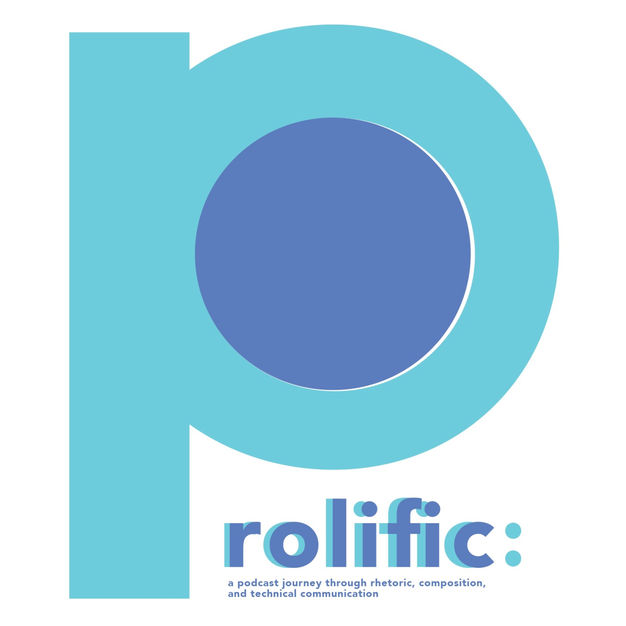 Prolific: A Podcast Journey Through Rhetoric, Composition, and Technical Communication
Prolific: A Podcast Journey Through Rhetoric, Composition, and Technical Communication
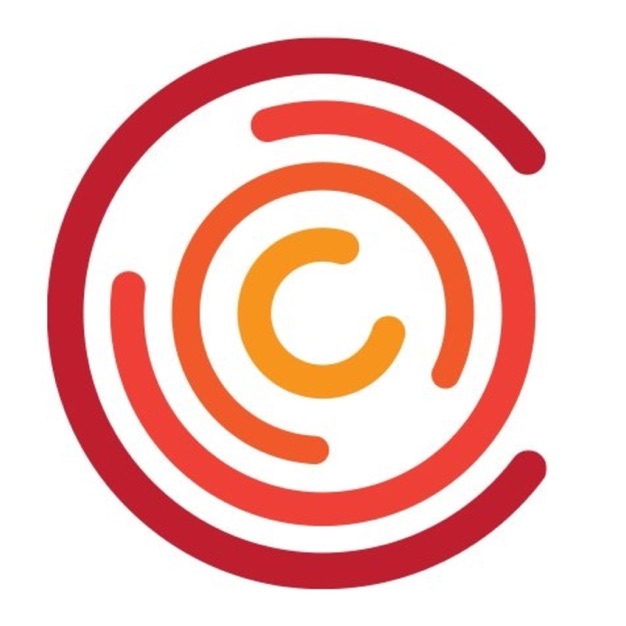 2018 CCCC Podcasts
2018 CCCC Podcasts
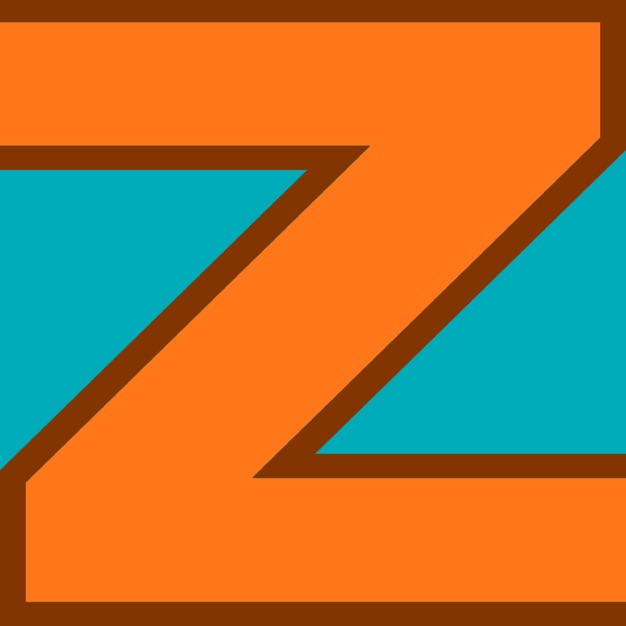 Zeugma
Zeugma
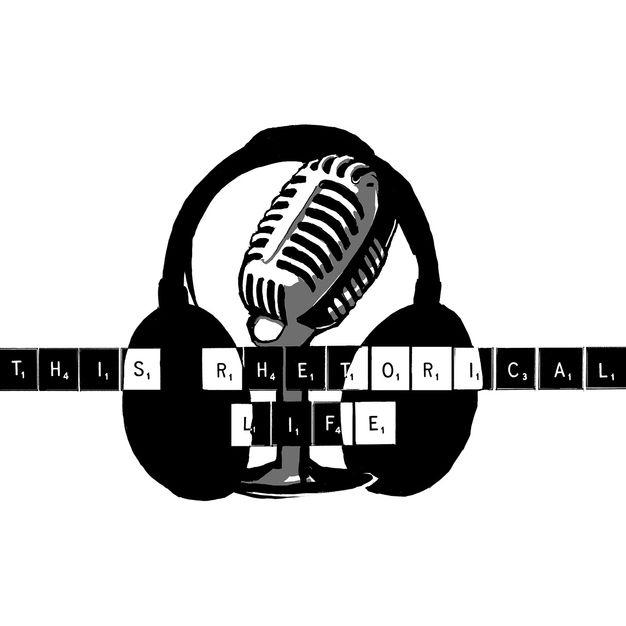 This Rhetorical Life
This Rhetorical Life
 Mere Rhetoric
Mere Rhetoric
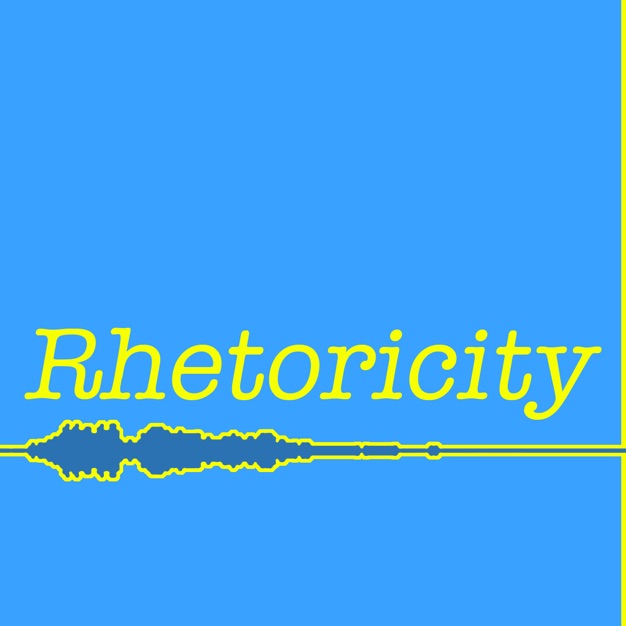 Rhetoricity
Rhetoricity